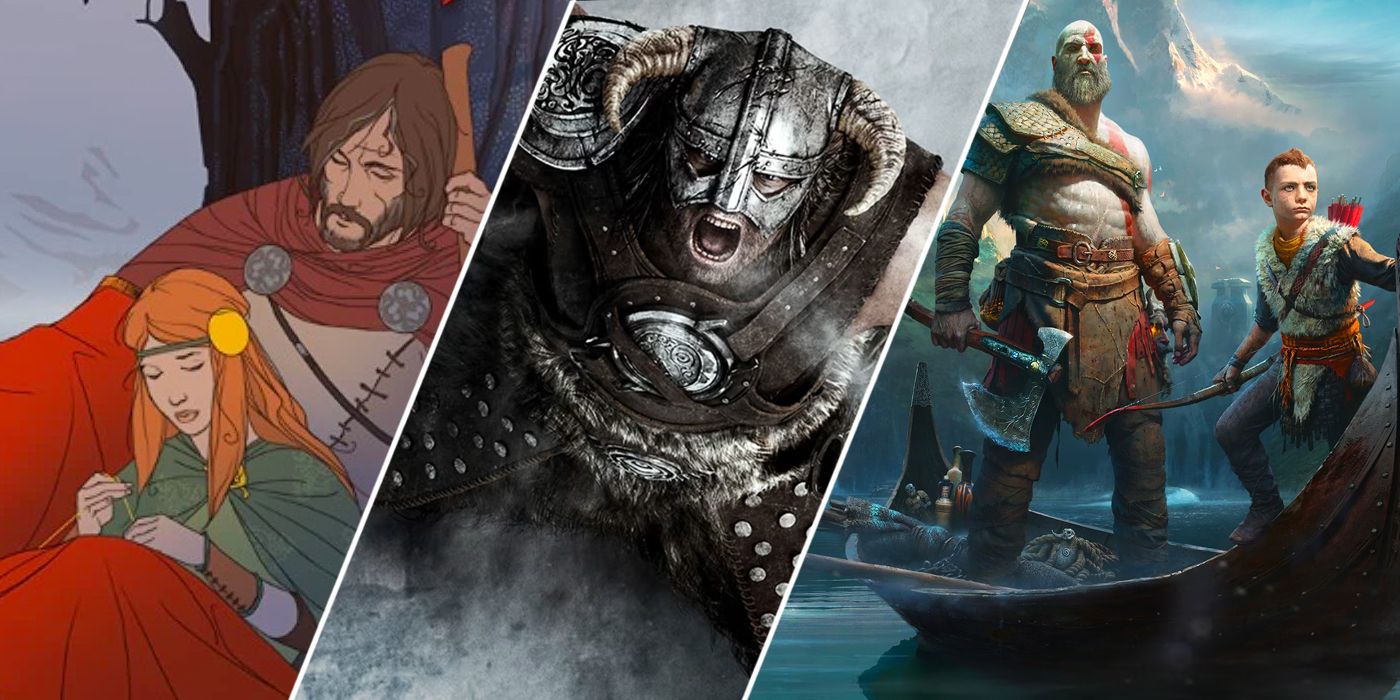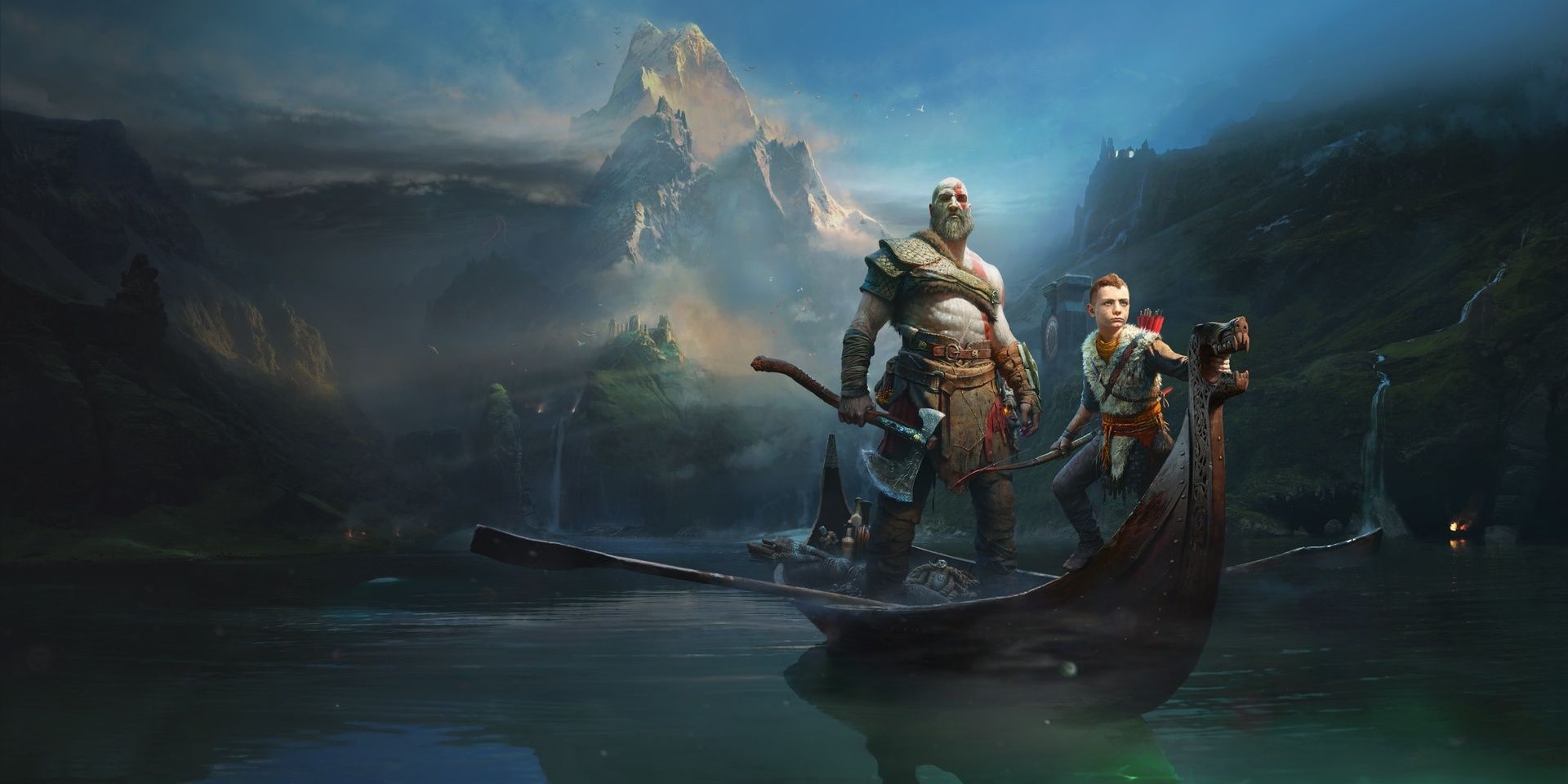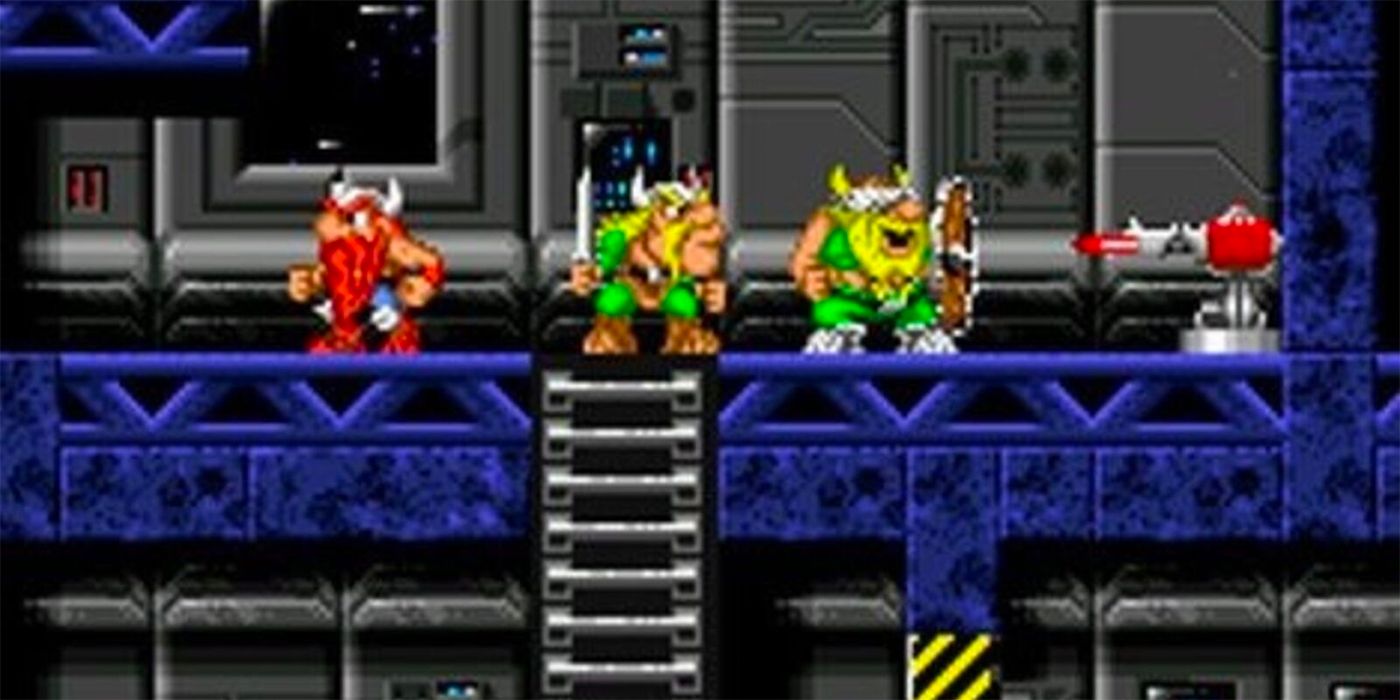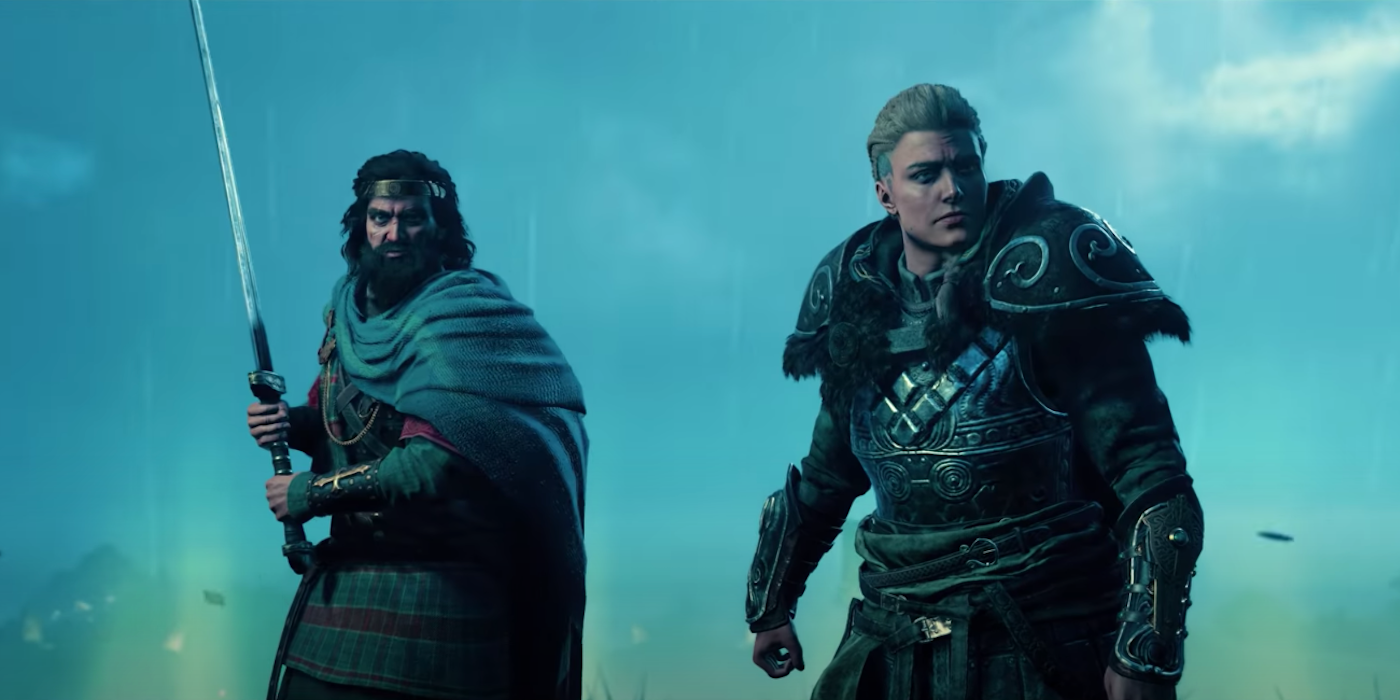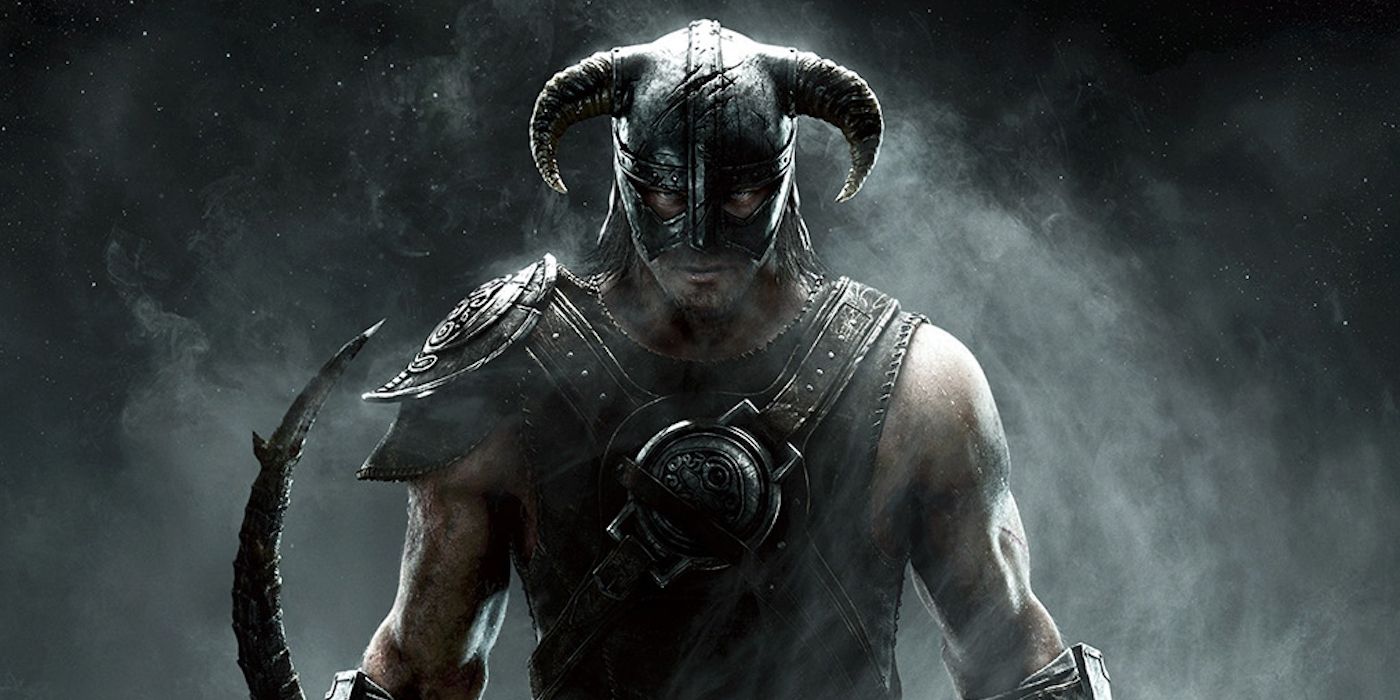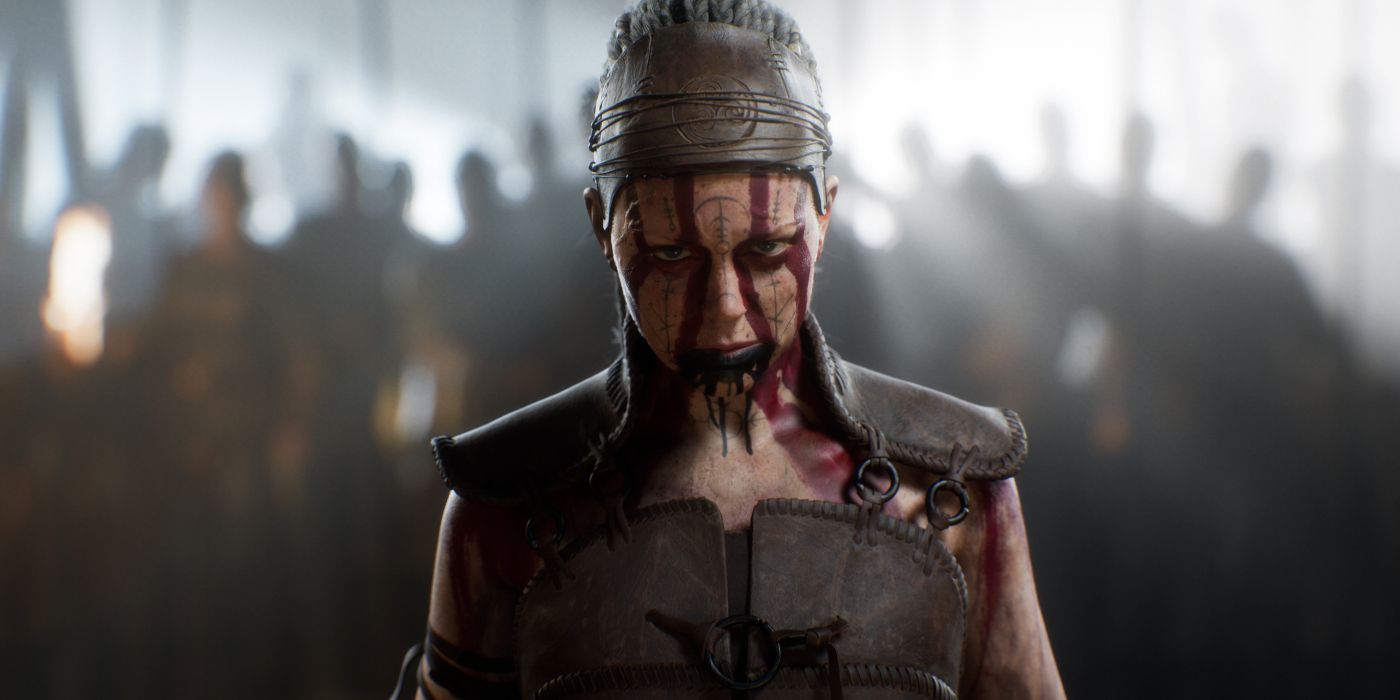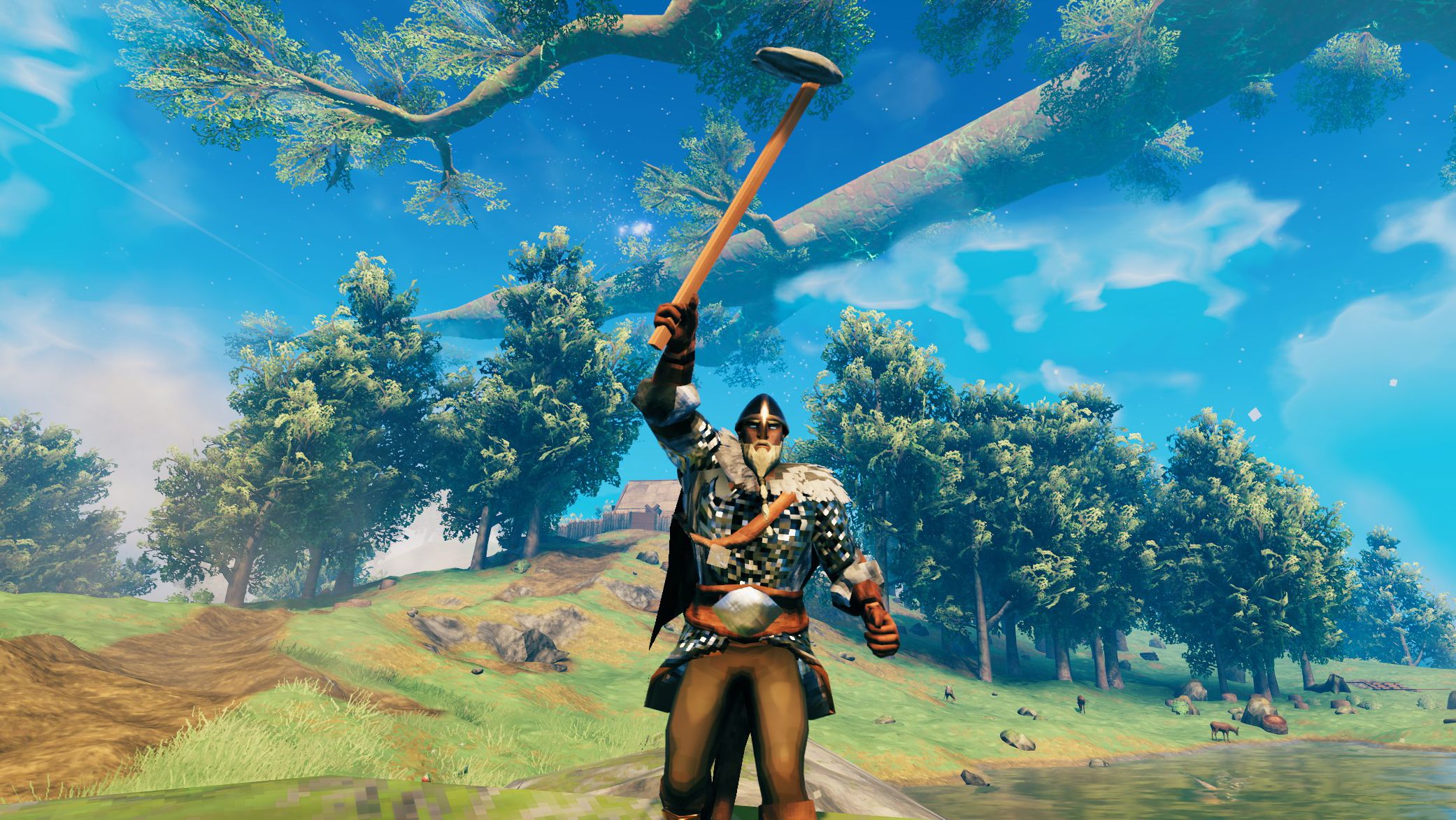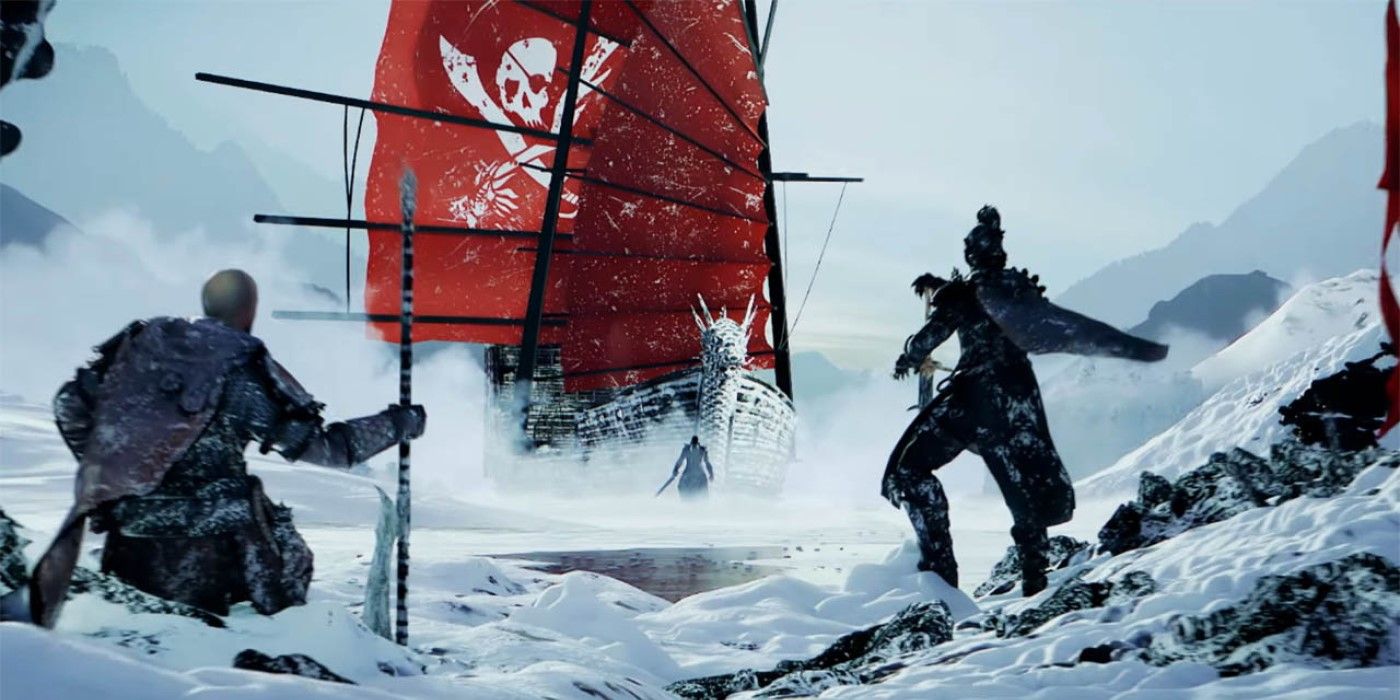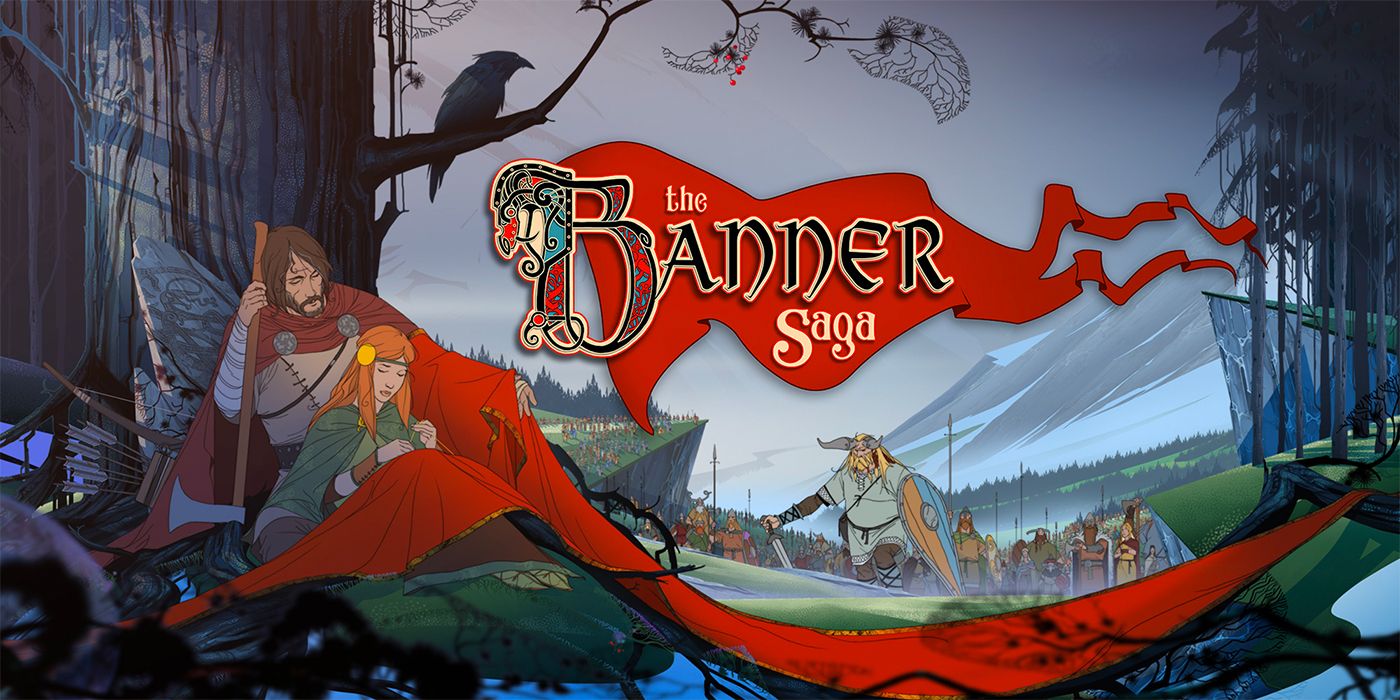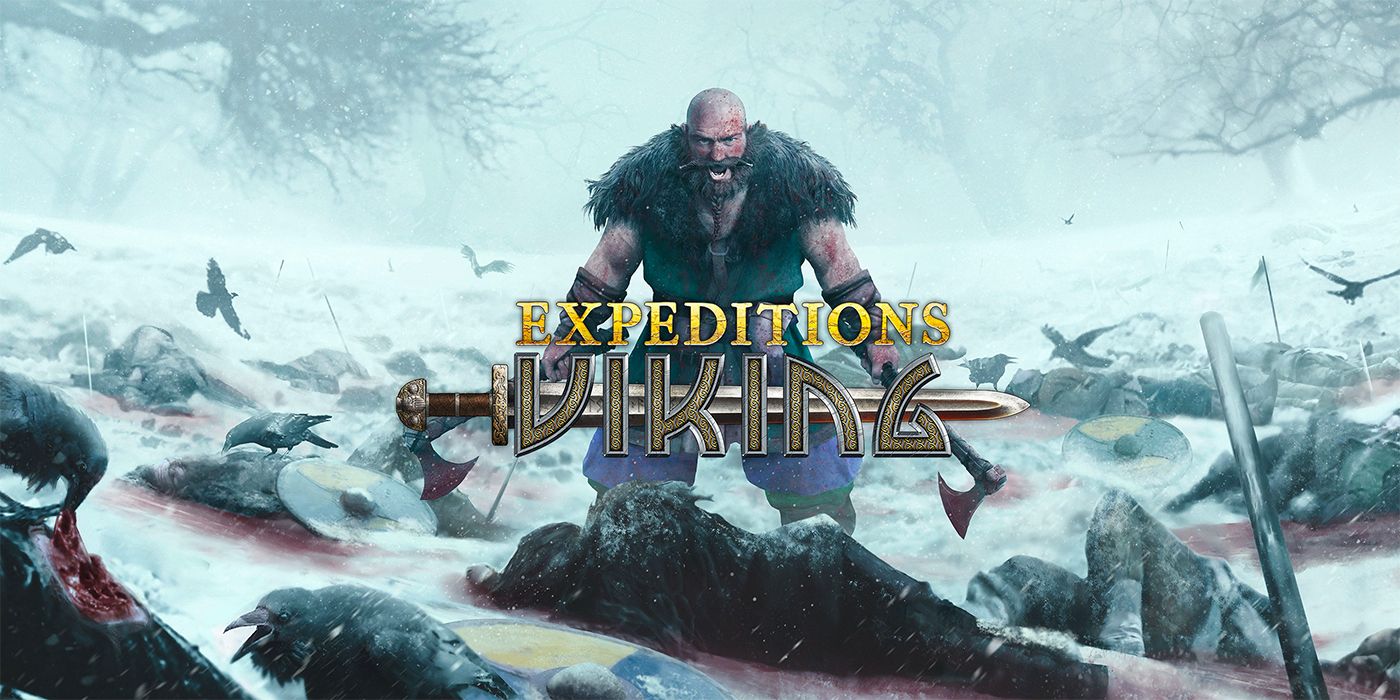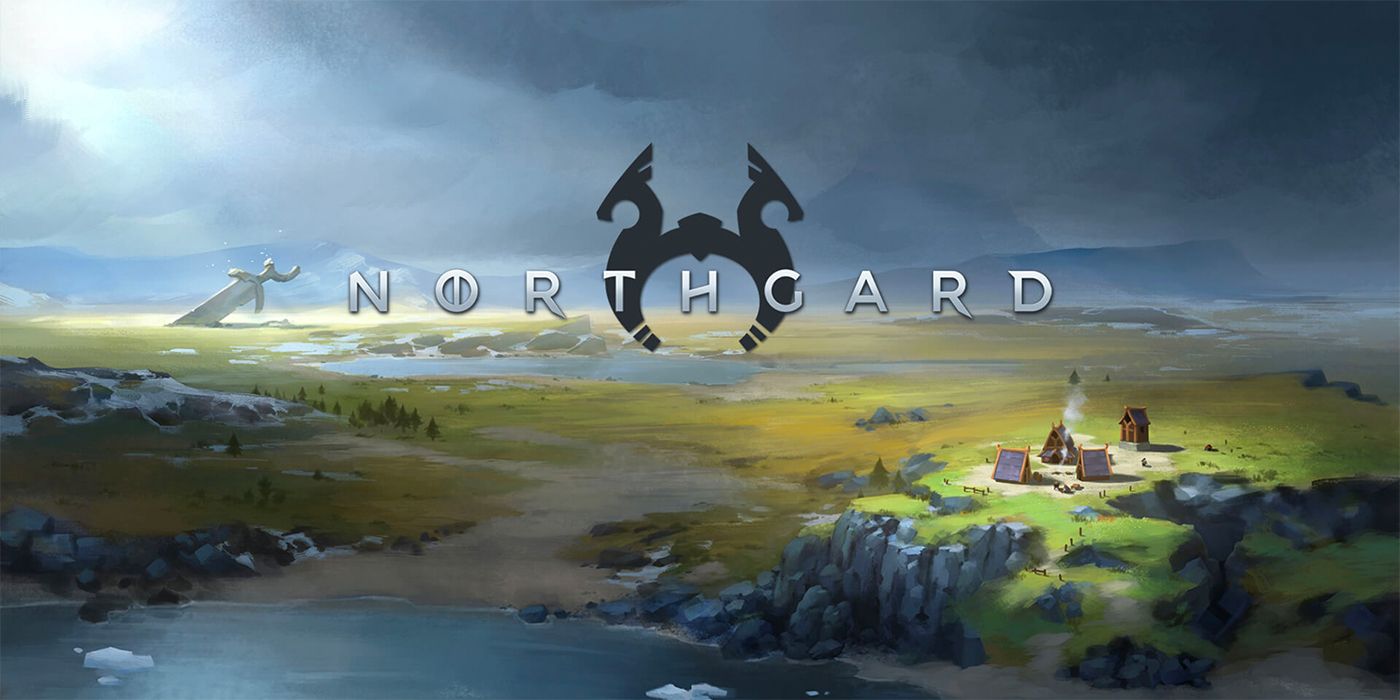Vikings and their exploits have long been the stuff of legend, and in terms of video games, these famous seafaring people function as both charismatic heroes and fearsome opponents. Norse mythology's rich tapestry of warring realms, Æsir gods, and rugged, frosty terrain provides a fascinating backdrop for gamers to explore, conquer, and enjoy. The following games serve as the high water mark for skillful incorporation of Viking characters and the adventurous spirit they embody.
God of War (2018)
Acting as both a sequel and tonal reboot to God of War III, this entry in the God of War series depicts gruff, muscular protagonist Kratos as a grieving single father tasked with fulfilling his late wife's last wishes. Too battle-hardened and cynical to be emotionally vulnerable, Kratos struggles to connect with his son Atreus as the duo travel across the nine realms, battling Æsir gods and getting uncomfortably close to the gigantic Jörmungandr, otherwise known as the World Serpent. The addictive combat and clever runic puzzles make this an adventure that gamers should not miss, especially since its sequel arrives in November.
The Lost Vikings 1 & 2
Available as part of Blizzard's Arcade Collection, The Lost Vikings games are 2D puzzle-based adventures that require players to switch between characters with different skills in order to progress through levels. The Vikings in this game are hardly historically accurate; they are outlandish, Three Stooges-esque caricatures meant to appeal to children. Despite what this game suggests, it is highly unlikely that real Vikings ever used their shields as hang gliders. Originally released on the Super Nintendo in 1993, The Lost Vikings is a bit of retro fun for clever puzzle-solvers. Its sequel, Norse by Norsewest, is even more ridiculous, as it features robots, a werewolf, and a dragon.
Assassin's Creed Valhalla
In this installment of Ubisoft's Assassin's Creed series, players can choose to play as either a male or female version of a Viking named Eivor Varinsdottir who leaves Norway to establish a new clan in Anglo-Saxon England. The game's setting serves as the opportunity for a variety of cultural clashes, with warring ideologies, theologies, and ways of life butting heads in social settings and the battlefield. Players explore a vast open world, sailing and raiding along with their clan to gain power and complete story missions. But those interested in the game for its brutality and immersive graphics should keep in mind that there will be moments like in most Assassin's Creed games where the player is pulled out of the historical narrative and forced to deal with some modern-day intrigue.
Skyrim
Skyrim takes place in a high fantasy setting established by the previous entries in The Elder Scrolls series, but its snow-covered mountains, Norwegian accents, and Scandinavian-inspired people show a clear influence to both real-world Vikings and Norse mythology. City chieftains are known as jarls, a reference to medieval Norway, where the title was used to refer to leaders below the rank of king. Likewise, housecarls in Skyrim serve the jarls as warrior servants (and even the player character in some circumstances), a direct reference to the domestic Norse bodyguards of the same name. Though Norse mythology and historical reference points are used to round out the game's universe, it is important to remember that this is a fantasy game with spells, werewolves, and vampires, and that Skyrim's primary focus is having player characters shout at dragons until they die.
Hellblade: Senua's Sacrifice
A gripping, nerve-racking adventure, Hellblade: Senua's Sacrifice casts players as a Pict warrior named Senua as she fights to free her lover's soul from the clutches of the goddess Hela. Adding difficulty to Senua's journey and stress to the player's experience, Senua is barraged by voices in her head that mock, undermine, and torment her, providing a frighteningly vivid depiction of life with mental health conditions that produce auditory and visual hallucinations, as well a palpable metaphor for the feeling of oppressive self-doubt and anxiety. The Norsemen in this story are antagonists, ones malformed by magic or reshaped by Senua's condition. The ambiguity between myth and reality allows the game to raise awareness of psychosis and provide a visceral example of what it means to work through trauma, especially for those who lacked access to modern treatment.
Valheim
A Viking-themed survival game that became hugely popular when it went into early access in February 2021, Valheim presents a World of Warcraft aesthetic paired with Minecraft-like mechanics. In order to progress through the game's vast procedurally generated worlds, players will have to collect supplies, craft weapons, and slay creatures. The more work players put into these tasks, the stronger they will become, thereby providing them with access to new areas, foes, and challenges. Like Minecraft before it, one of the reasons that Valheim rose to prominence is its multiplayer camaraderie. While some players might like to set sail on their own, others might want to take down larger enemies like trolls and ethereal bosses with their pals. Luckily Valheim is flexible enough for either play style to be enjoyable.
For Honor
For Honor is a multiplayer team fighting game where players choose from one of five factions: Knights, Vikings, Samurai, the Wu Lin, and the Outlanders, whose roster of heroes is still rolling out this year. Players have the opportunity to fight as or against Viking characters in this game, as the game's medieval fantasy setting allows mashups between cultures that likely did not battle or even meet each other in real life. Combat is at the forefront of For Honor, and players must master its intricate but rewarding gameplay in order to best their opponents and stand victorious. Though plainly an excuse to see famous warriors from across time kick the living snot out of each other, For Honor does include some key references to Norse mythology among its Viking heroes with character classes named after the Valkyries and Jörmungandr most notably.
Crusader Kings III
The draw of the Crusader Kings series is the ability to shape the course of history while creating rich and complex stories about world leaders in the Middle Ages. Rulers can become social drinkers and forge new alliances with fellow imbibers or develop backdoor dealings with shady customers to give their army the upper hand. Players can lead Vikings, as well as a variety of other factions, to victory or defeat as they make choices involving everything from waging war to siring heirs. CKIII's Northern Lords expansion is an additional purchase that puts the Vikings into full focus and also bolsters them with some bombastic new music and other cross-cultural gameplay improvements. The result of a satisfying game of Crusader Kings III is the ability to regale friends, family members, and random strangers with the tale of your ruler's achievements, multiple spouses, and a variety of misdeeds.
The Banner Saga
A tactical role-playing game with a beautiful hand-drawn aesthetic, The Banner Saga challenges players to guide a caravan of Nordic folk across the frigid tundra while making difficult decisions that may have devastating consequences. The game's development team included former Bioware developers, so it should be no surprise to fans of Mass Effect or Dragon Age that this is a game full of conversations and tricky choices. The character design is a cross between classic Don Bluth animation and the Rankin/Bass Hobbit movie, giving the game an uncommon charm. Combat is turn-based and takes place on a grid, making it a bit like Dungeons & Dragons by way of Fire Emblem. Taking about ten hours to complete, The Banner Saga is a good choice for thoughtful, strategic players without a lot of free time to waste.
Expeditions: Viking
A top-down CRPG, Expeditions: Viking places players in the boots of a Viking who inherits the leadership role of their late father's clan. The game features strategic combat that borrows the hex grids of the Civilization series and the turn-based battles of games like Divinity: Original Sin or XCOM. Like many CRPGs (and other games on this list) your choices affect the story, so there is a fair amount of replayability. For example, you can be a violent warrior who takes no prisoners, or you can be a non-lethal combatant who prefers to trade, treating violence as a last resort. As in other games on this list, you'll set sail for England and deal with various factions like Picts and Angles. What makes this game special is the pliability of the game's systems, allowing you the freedom to play in a variety of equally viable styles.
Northgard
Northgard is a real-time strategy game featuring six different playable Viking clans, each with their own strengths and weaknesses. Featuring charming, stylized graphics, a fun mix of humans and mythological creatures, and soothing music, Northgard is the Viking equivalent of Warcraft. Your ultimate goal is to conquer the land and defeat the beasts and baddies standing in your way. As usual in these types of games, players will need to manage resources, construct buildings, and deploy units to take over more territory. Northgard's campaign is relatively short, however, making this game a brief jaunt (unless you become obsessed with its multiplayer)

